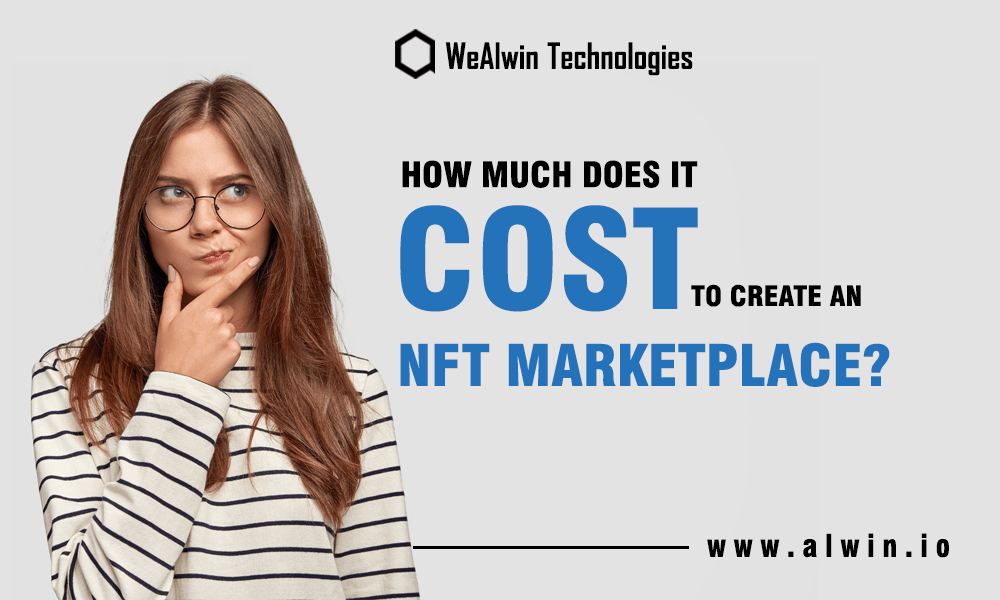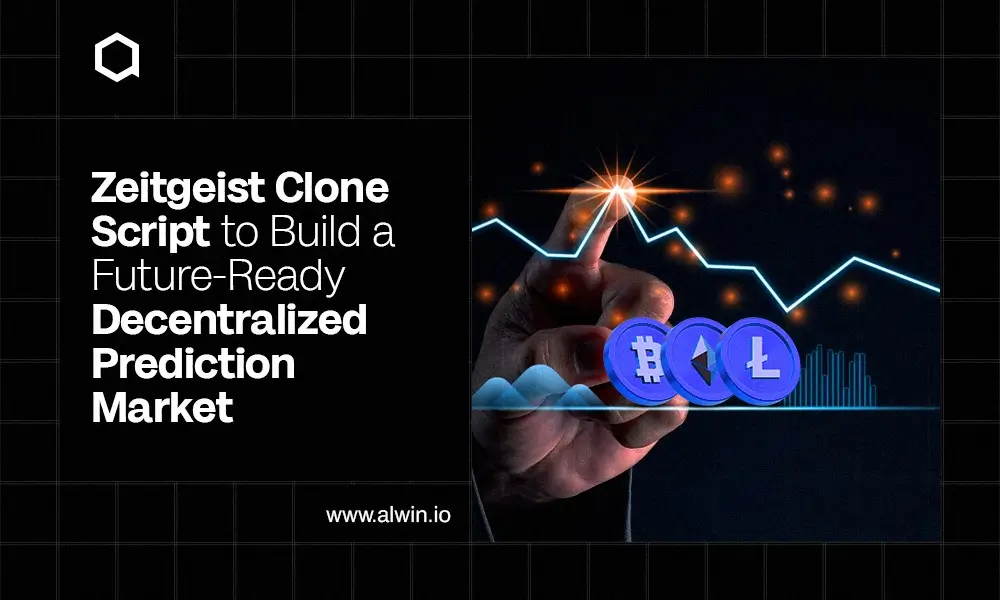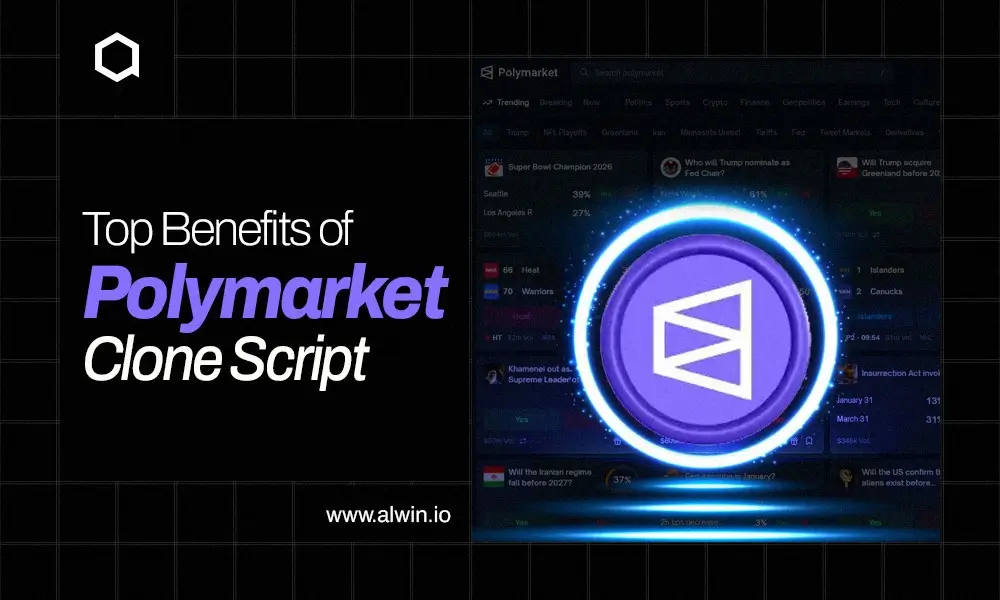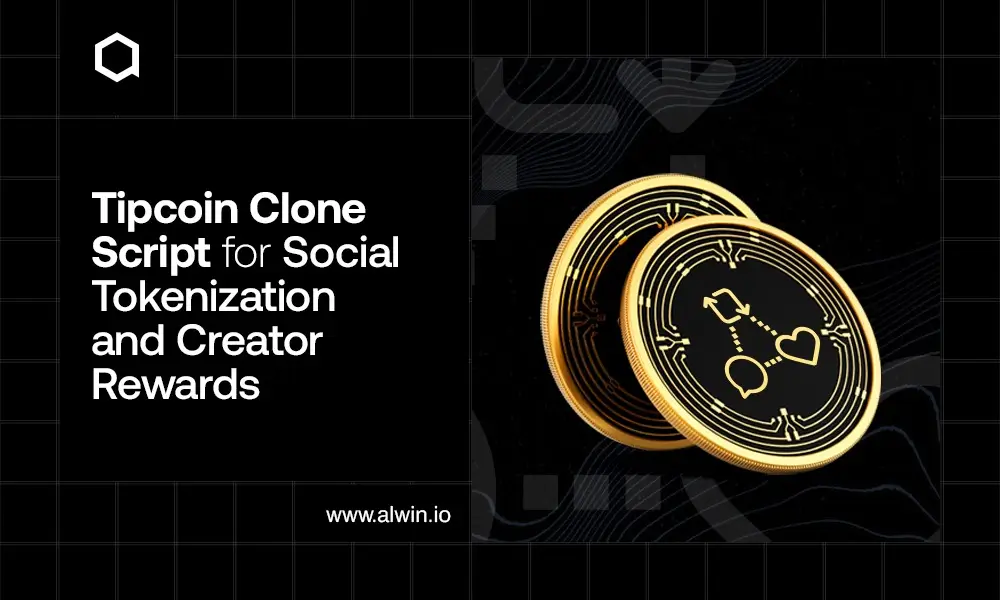An NFT marketplace is a platform designed for users to trade digital assets such as digital art, music, videos, and other forms of digital content. Unlike cryptocurrencies, which are interchangeable and fungible, NFTs (Non-Fungible Tokens) represent ownership of specific items or pieces of content. Each NFT possesses unique properties and metadata that distinguish it from any other token, making it one-of-a-kind within the blockchain ecosystem. This uniqueness and verifiable ownership have sparked a surge of interest in NFTs as a new form of digital asset with distinct value and potential applications across various industries.
Why Invest in NFT Marketplace Development?
NFT marketplaces such as OpenSea, Rarible, and Superfarm have emerged as central hubs for funding and generating substantial revenue. According to Statista’s projections, the NFT market revenue is anticipated to grow annually by 27.26% from 2022 to 2027, reaching approximately $8,412 million by 2027.
This growth underscores the profitability of any business model involving NFTs, prompting startups and enterprises alike to buy, sell, and invest in NFT marketplace development.
Investing in an NFT marketplace offers numerous benefits:
Revenue Generation:
Earn from transaction fees, listing fees, and royalties on secondary sales.
Market Growth:
The NFT market is rapidly expanding, with increasing interest in digital ownership and collectibles.
Blockchain Security:
Immutable and transparent transactions reduce the risk of fraud.
Innovation Potential:
NFTs are being integrated into various sectors, including art, music, gaming, and real estate, indicating significant future growth potential.
Before embarking on your own NFT marketplace project, it’s crucial to understand the cost associated with developing an NFT Marketplace.
This article provides insights into estimating the cost of developing an NFT marketplace, factors influencing development expenses, and key considerations before initiating the process. So, let's delve into the details without delay!
How Much Does it Cost to Create NFT Marketplace Development?
The average cost of developing an NFT marketplace typically ranges from $40,000 to $50,000 depending on the various factors. It includes the type of blockchain developed, number of developers, time complexity, etc. Developing an NFT marketplace from scratch generally costs more than using a pre-built solution. Below are the key components that influence the overall development cost.
Factors Influencing the NFT Marketplace Development Cost
Platform Type and Complexity
The complexity and type of platform you want to build significantly impact the cost. A basic platform with essential features will cost less than a complex one with advanced functionalities and customizations.
Blockchain Platform
The choice of blockchain platform affects the cost. Popular options include Ethereum, Flow, Binance Smart Chain, and Tezos. Each blockchain has its own cost structure for transactions and smart contract deployment.
UI/UX Design
High-quality UI/UX design enhances user experience but also increases development costs. Investing in a user-friendly and visually appealing design is crucial for the platform's success.
Technology Stack
The technology stack used for development, including programming languages, frameworks, and tools, influences the cost. Choosing a robust and scalable technology stack is essential for the platform's performance and longevity.
Development Team
The expertise and size of the development team play a significant role in the overall cost. Hiring experienced developers, designers, and blockchain experts can be expensive but ensures a high-quality product.
Wallet Integration
Secure wallet integration is crucial for managing cryptocurrencies and NFTs. Adding wallet integration incurs additional expenses, depending on the number and type of wallets you want to support.
Payment Gateway Integration
Necessary for processing transactions, payment gateway integration adds to the development cost. It ensures that users can buy and sell NFTs seamlessly.
Smart Contracts and Token Standards
Implementing secure and efficient smart contracts increases development costs. Adhering to token standards like ERC-721 and ERC-1155 ensures interoperability and security.
Security and Auditing
Ensuring the platform's security requires investment in security measures and auditing processes. Regular audits and security checks are essential to prevent vulnerabilities and hacks.
Legal and Regulatory Compliance
Adhering to legal standards involves additional costs. Ensuring compliance with local and international regulations is crucial to avoid legal issues and ensure smooth operations.
NFT Marketplace Maintenance Cost
Ongoing maintenance and updates are necessary to keep the platform running smoothly. Regular maintenance ensures that the platform remains secure, up-to-date, and capable of handling increasing user traffic.
Detailed Breakdown of NFT Marketplace Development Cost
Development Cost Based on Features
The cost depends on the features you incorporate. Here’s a rough estimate based on essential features:
- Basic Features (Storefront, Listings, Wallet Integration): $40,000 - $50,000
- Advanced Features (Auctions, Filters, Ratings, Notifications): $100,000 - $200,000
- Custom Features (Enhanced Security, Unique Functionalities): $200,000 and above
Development Cost Based on Factors
Factors such as team composition, technology stack, and market niche significantly influence the development cost. Hiring experienced developers, choosing the right blockchain, and investing in high-quality design can increase costs but ensure a superior product.
Additional Factors including to Costs in NFT Marketplace while building
Other additional factors include ongoing maintenance, updates, and scaling infrastructure to handle increased traffic. Marketing and promotion, legal fees for regulatory compliance, and potential upgrades also contribute to the overall cost.
Monetization Strategies for NFT Marketplace Development
Royalty
Earning a percentage from secondary sales is a common monetization strategy. This ensures that creators continue to benefit from their work even after the initial sale.
Listing
Charging for listing NFTs on the platform generates revenue. This can be a flat fee or a percentage of the listing price.
Promotion
Offering promotional services for a fee helps creators and sellers increase the visibility of their NFTs, generating additional revenue for the platform.
Bidding
Charging fees on auction bids is another effective monetization strategy. This incentivizes active participation in auctions and generates revenue from the bidding process.
Criteria to Consider Before Building an NFT Marketplace
Non-fungible Token Standards
Ensure compatibility with popular NFT standards like ERC-721 and ERC-1155. These standards define the properties and behaviors of NFTs, ensuring interoperability and security.
Non-fungible Token Metadata
Properly manage and store metadata associated with NFTs. Metadata includes important information about the NFT, such as its title, description, and properties, which are crucial for its identification and value.
Steps To Build an NFT Marketplace App
Step 1: Define Your Niche
Identify the specific market segment you want to target. This could be art, gaming, music, real estate, or any other sector where digital ownership and collectibles are valuable. Defining your niche helps in catering to a specific audience and customizing the platform's features accordingly.
Step 2: Define App Panels
Design different panels for users, admin, and sellers to ensure a seamless experience. User panels should be intuitive and easy to navigate, admin panels should offer comprehensive management tools, and seller panels should provide robust functionalities for listing and managing NFTs.
Step 3: Documentation
Prepare comprehensive documentation outlining all aspects of the development process. This includes technical specifications, user requirements, and project timelines. Thorough documentation ensures that all team members are aligned and helps in managing the project efficiently.
Step 4: App Prototyping
Create a prototype to visualize the app’s design and functionalities. Prototyping allows for early feedback and iteration, ensuring that the final product meets user expectations. It also helps in identifying potential issues and addressing them before full-scale development begins.
Step 5: Development Stage
Build the app using suitable technologies and integrate blockchain capabilities. This involves coding the backend and frontend, setting up the blockchain infrastructure, and ensuring that all features are implemented correctly. Choosing the right technology stack is crucial for the app's performance and scalability.
Step 6: Implement Token Generators
Incorporate mechanisms to create and manage NFTs. Token generators are essential for minting new NFTs and managing existing ones. They should comply with popular token standards like ERC-721 and ERC-1155 to ensure interoperability and compatibility with other platforms.
Step 7: Test and Execute
Thoroughly test the app for any bugs and deploy it for user access. Testing should cover functionality, security, and performance to ensure that the app is robust and reliable. Once testing is complete, execute the deployment process and make the app available to users.
How Can WeAlwin Technologies Help to Create an NFT Marketplace?
WeAlwin as a top NFT Marketplace Development Company in developing custom NFT marketplaces customized based on your needs. We provide end-to-end solutions from conceptualization to deployment, ensuring your marketplace is secure, scalable, and user-friendly. By leveraging our expertise, you can build a robust NFT marketplace that stands out in the competitive digital asset landscape.



